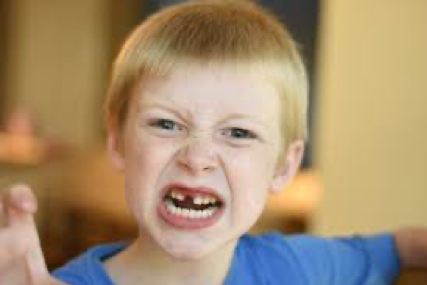What are extreme sound disorders? Misophonia means the “hatred of sounds”, but it does not necessarily mean that everyone who has a certain irritation to some sounds is misophonic. In reality, the sound of forks scraping plates and nails on a chalkboard or wall is something that almost everyone finds unpleasant.

(Source)
According to experts, Misophonia is a condition in which people show moderate to intense reactions, including severe irritation, anger, and aggression, when they encounter some specific sounds and noises. Bear in mind that these sounds may be normal to other people, and they might not even notice them. These include chewing, pen tapping, screeching, whistling, rustling, typing, clicking, ticking, etc.
Signs and Symptoms of Misophonia (Sound Disorder)
Apart from the number of emotional reactions, including annoyance, anger, irritation, stress, anxiety, and depression, there are certain physical reactions as well. Several studies suggest the following:
- Rapid blood pressure drops and spikes
- Heart rate increase
- Muscle tightness
- Pressure through the body (chest pressure)
- Body temperature increase
Outlook of Misophonia (Sound Disorder) Symptoms
The symptoms are the body’s response when something sudden happens. For instance, the person may experience muscle tightness or a sudden rise in body temperature. However, such a fight or flight response of the nervous system is automatic and can trigger subconsciously or unconsciously.
In simple words, the body perceives certain Misophonia trigger sounds as threats and consequently produces stimuli in accordance with it. Therefore, feelings of panic, rage, and anger are common.
More importantly, misophonic people don’t go to social gatherings and events to avoid sudden reaction outbursts upon encountering Misophonia triggers. Others might go beyond control and isolate themselves, wear headphones unnecessarily, and avoid social interactions.
Diagnosis of Extreme Sound Disorders
Misophonia is not yet recognized as a mental disorder in the DSM-5 (Diagnostic and Statistical Manual of Mental Disorders). Consequently, there is a lack of official diagnostic principles. Despite that, scientists consider Misophonia as a discreet psychiatric disorder that is separate from other similar mental health conditions.
In addition, scientists do believe Misophonia is similar to other mental disorders, such as obsessive-compulsive disorder, bipolar disorder, anxiety disorders, and many phobias (hence, “phobia of chewing”). However, they still conclude that none of the said conditions fully exhibit the extent of characteristics that exist in misophonic people.
Those characteristics of Misophonia include:
- Anticipation of trigger sounds results in irritation and anger
- Avoidance of social interaction and trigger sounds environment
- Loss of control under anger
- Disruption in regular tasks and activities
- Feelings are highly dissimilar in comparison with other mental disorders
Treatments for Extreme Sound Disorders
While there is no official diagnostic approach to Misophonia, numerous treatments are available that may help in alleviating the symptoms of this neurological disorder.
Moreover, you should know that there are no approved medications or prescriptions in the US (by the FDA) for Misophonia treatments. Nonetheless, your doctor can provide a set of prescriptions to help control anger, anxiety, blood pressure spikes, and stress.
Cognitive Behavioral Therapy
Cognitive Behavioral Therapy (CBT) works to improve the understanding of this mental health condition to the misophonic patients and the people around them (i.e., family and/or friends). The core understanding behind how certain trigger sounds might lead to anger or irritation helps Misophonia patients. Thus, they are able to cope with it and improve their reactions to the trigger sounds.
CBT works to establish the rectification of the negative thinking pattern that causes people to fear, anticipate worse, and react adversely even when nothing has happened. Another objective of CBT is to teach patients to control their emotions and avoid irrational reactions.
Some of the techniques include mindfulness, emotional regulation, distress tolerance, etc. Moreover, CBT also helps misophonic patients relax by triggering the relaxation response of the body.
White Noise Treatment
White noise treatment generally refers to the use of ear-level devices that can play sounds, such as aesthetically calm waterfall noises or a river flowing. This helps in masking the unintentional or trigger sounds to prevent adverse reactions.
Eventually, a misophonic patient gets better at ignoring the trigger sounds and focusing on the calm sounds. In simple terms, it is the addition of background music to the environment that only the wearer of the white noise machine hears (i.e., ear-level devices rather than room-level devices such as fans).
Tinnitus Retraining Therapy (TRT)
Tinnitus is a condition in which a person hears ringing in their ear. The consistent ringing in the ear can cause discomfort and restlessness.
Therefore, TRT helps in controlling the reactions against such noise as well as Misophonia trigger sounds. Likewise, they also help in enhancing the tolerance of the misophonic patient against the trigger sounds.

(Source)
Other Therapies
Many different therapies also help treat Misophonia and other extreme sound disorders. They include hypnotherapies, neurofeedback, biofeedback, acupuncture, and several autism treatments.
However, there isn’t sufficient research and data to support the effectiveness of these therapies. That said, experts are focusing on the prognosis of this neurological disorder.
Extreme Sound Disorders: Conclusion
If you are in search of treatments for extreme sound disorders for you or someone in your family, then visit the Misophonia Cognitive Center™.
Stephen Geller Katz LCSW-R has extensive experience and knowledge in the field of sound disorders such as tinnitus and misophonia. By using the latest equipment and research principles, Dr. Katz ensures to deliver effective treatment results.
Call 646-585-2251 to schedule an online appointment today.
Visit our main website for more information: https://www.misophoniacognitivecenter.com/
References:
https://www.medicalnewstoday.com/articles/320682#symptoms
https://www.verywellmind.com/misophonia-treatment-4845902
https://misophoniainstitute.org/treatment-options/
https://www.webmd.com/brain/sound-sensitivity-hyperacusis https://en.wikipedia.org/wiki/Misophonia#:~:text=Misophonia%20is%20a%20disorder%20of,fight%2Dor%2Dflight%20response.
https://www.jneurosci.org/content/early/2021/05/20/JNEUROSCI.0261-21.2021
https://www.sciencefocus.com/news/misophonia-scientists-discover-the-brain-connection-responsible-for-supersensitivity-to-noise/
